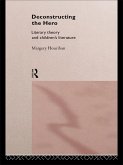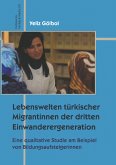This book develops a theoretically rich analysis of quantification and subjectivity, tracing new linkages between educational policy and everyday life in schools, diving deeper into ‘ordinary’ schools as they encounter and navigate quantified forms of recognition. With a focus on Chile as a critical case of neoliberal experimentation, this book investigates whether intense exposure to quantified forms of meaning and sense-making in school settings could develop into metrics-driven dispositions or attachments. Contemporary demands on schools for calculation, prediction, and comparison by the use of accountability tools like high-stakes testing, league tables, consequential inspection ratings and ‘progress’ measures evidence the relentless presence of quantification in teaching and learning. This book argues the importance of bridging political, sociological and anthropological literatures together with affect and subjectivity theories to understand the complex ways in which standardisation, optimisation, automation, and surveillance crystallise into quantification-based forms of intelligibility.
Bitte wählen Sie Ihr Anliegen aus.
Rechnungen
Retourenschein anfordern
Bestellstatus
Storno









